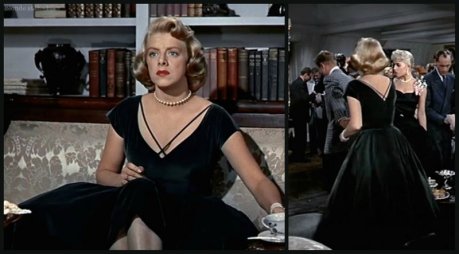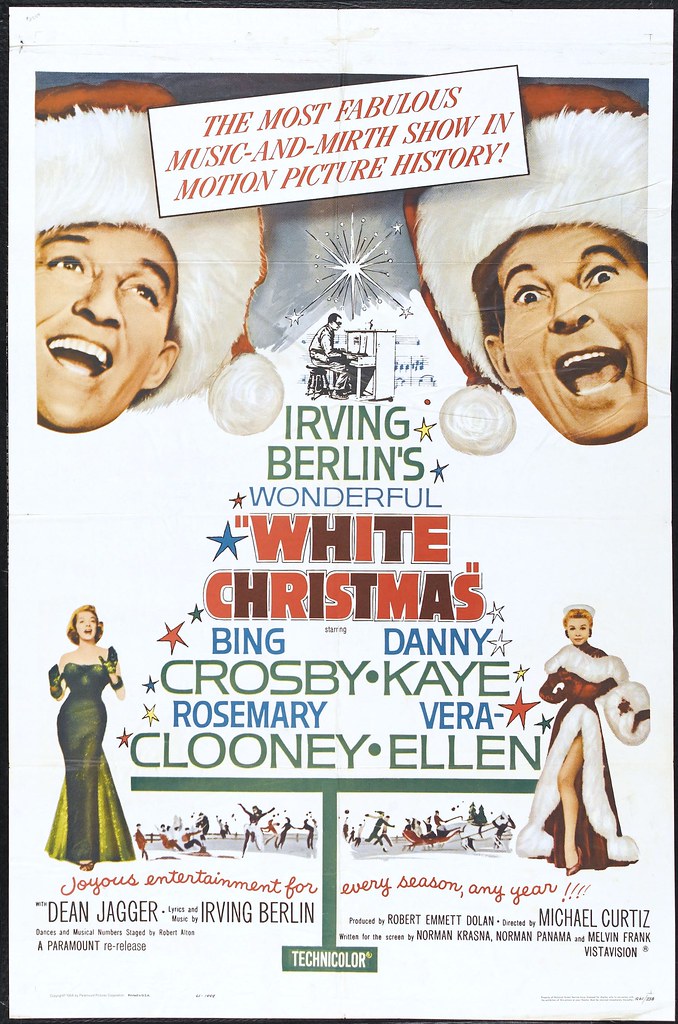Pages
▼
Saturday, December 24, 2016
Wednesday, December 21, 2016
A Kind-Of Christmas Movie: Remember the Night (1940)
Preston Sturges was having a hard time during the creation of this classic Christmas film against Paramount producer Al Lewin. "Writing [...] almost caused me to commit hara-kiri several times, but I postponed it for some later assignment. The trouble was in finding a way to get some pizazz into the story." (Sturges, Preston Sturges by Preston Sturges: His Life in His Words) Initially inspired by personal experience, falling in love with second wife and socialite Eleanor Hutton on a road trip to Palm Beach (which would also be mirrored in "The Palm Beach Story"), the problems laid in motive.
"When I had Fred MacMurray, as the district attorney,take Barbara Stanwyck, the girl on trial for theft, up to the mountains to reform her, the script died of pernicious anemia. When I had him take her up because his conscience bothered him having had her trial continued after the Christmas season, it perished from lack of oxygen. When I had him take her up by charitable impulse and the Yuletide spirit, it expired from gallopingeunuchery . So I thought of a novelty. The district attorney takes her up to the mountains for the purpose of violating the Mann Act."
Once in production, director Mitchell Leisen (who also directed "Easy Living") further pared down "Remember the Night" so much, it would push Sturges into both writing and directing his films from that point on.
"Remember the Night" was 8 days ahead of schedule and 50,000 under budget thanks to Leisen's leading lady. ""[She] was the greatest," he said. "She never blew one line through the whole picture. She set that kind of pace and everybody worked harder, trying to outdo her. She was always right at my elbow when I needed her. We never once had to wait for her to finish with the hairdresser or the make-up
The end result had pickpocket Lee stealing a bracelet from a jeweler for no good reason. We never find out the reasoning why she did it, but it takes her directly into court before Christmas complete with an idiot for a lawyer and an assistant District Attorney who doesn't want the Christmas spirit to infect the jury. Halting the trial, Sargent finds himself feeling guilty for leaving Lee in jail over the holiday and gets a bondsman to set her bail until the next trial. But she has nowhere to go in New York City with her hotel room rent
Frank S. Nugent of The New York Times would consider "Remember the Night" as "the real curtain-raiser for 1940." "It is a memorable film, in title and in quality, blessed with an honest script, good direction and sound performance. Its character drawing is deft and in splendid proportion. The incidents chosen to work the changes in the hearts and minds of the central folk are apt and aptly presented. Rarely has a theme been so smoothly advanced and so pleasantly played out so sensible and credible a conclusion." Sturges best described his own film as "love reformed her and corrupted him, which gave us the finely balanced moral that one's man meat is another man's poison, or caveat emptor. As it turned out, the picture had quite a lot of schmaltz, a good dose of schmerz and just enough schmutz to make it at the box office."
Monday, December 19, 2016
#ManCrushMonday #HolidayEdition 6 Times Bing Crosby Made Christmas Happen
"O Sanctissima"
"White Christmas"
"Ave Maria"
"White Christmas"
"Silent Night"
"Adeste Fidelis"
Tuesday, December 13, 2016
Deathmatch: Holiday Inn (1942) vs. White Christmas (1954)
Story
In "Holiday Inn," Jim Hardy (Bing Crosby), Ted Hanover (Fred Astaire), and Lila Dixon (Virginia Dale) have been in a musical act for many years. Jim and Lila have been romantically intertwined and while he plans to marry her and retire to a farm in Connecticut, but Lila has different plans. Not wanting to give up her career, or romantic affair on
Hardy retire s
When Reed goes to the flower shop to get flowers for Lila for Ted, he gets accosted by the florist (Marjorie Reynolds) who knows hin song until
Previous WW2 soldiers Captain
One such decision is having to check out who they believe an old soldier buddy's sisters awhile
It is further serendipity when they find out the sisters are heading up to the Columbia Inn in Vermont which is owned by their former commander Major General Waverly (Dean Jagger). Intrigued and without their sleeping rooms on the train with Davis offering them to the sisters, the boys find themselves helping the man they used to serve with a "let's make a show" arc for the rest of the film as Bob and Betty's relationship
I personally couldn't choose one over the other. There are elements I enjoy and love from both of them.
Favorite Underrated Song:
Favorite Bing Crosby role:
Captain Bob Wallace from "White Christmas"
Favorite Acting Performance:
Rosemary Clooney as Betty Haynes "White Christmas"
Favorite Underrated Acting Performance:
Dean Jagger as Major General Thomas F. Waverly from "White Christmas"
Favorite Costume:
 |
| Rosemary Clooney in Edith Head in "White Christmas" |
Favorite Dancing Moment:
Favorite Underrated Dancing Moment:
Favorite Christmas-sy
 |
Favorite Dancing Performance:
"I Can't Tell a Lie" from "Holiday Inn"
Favorite Underrated Dancing Performance:
Favorite Supporting Character:
Mary Wickes as Emma Allen in "White Christmas"



